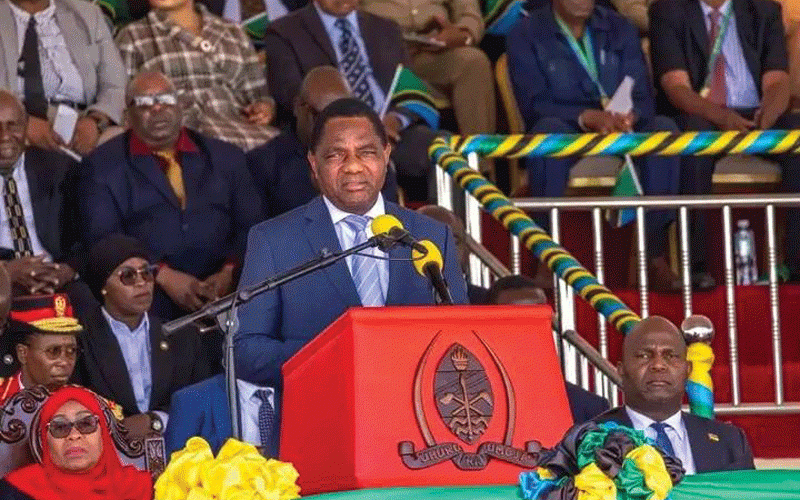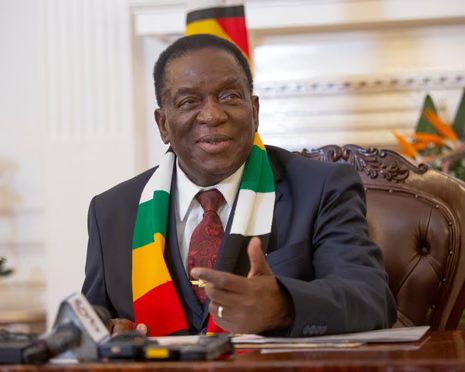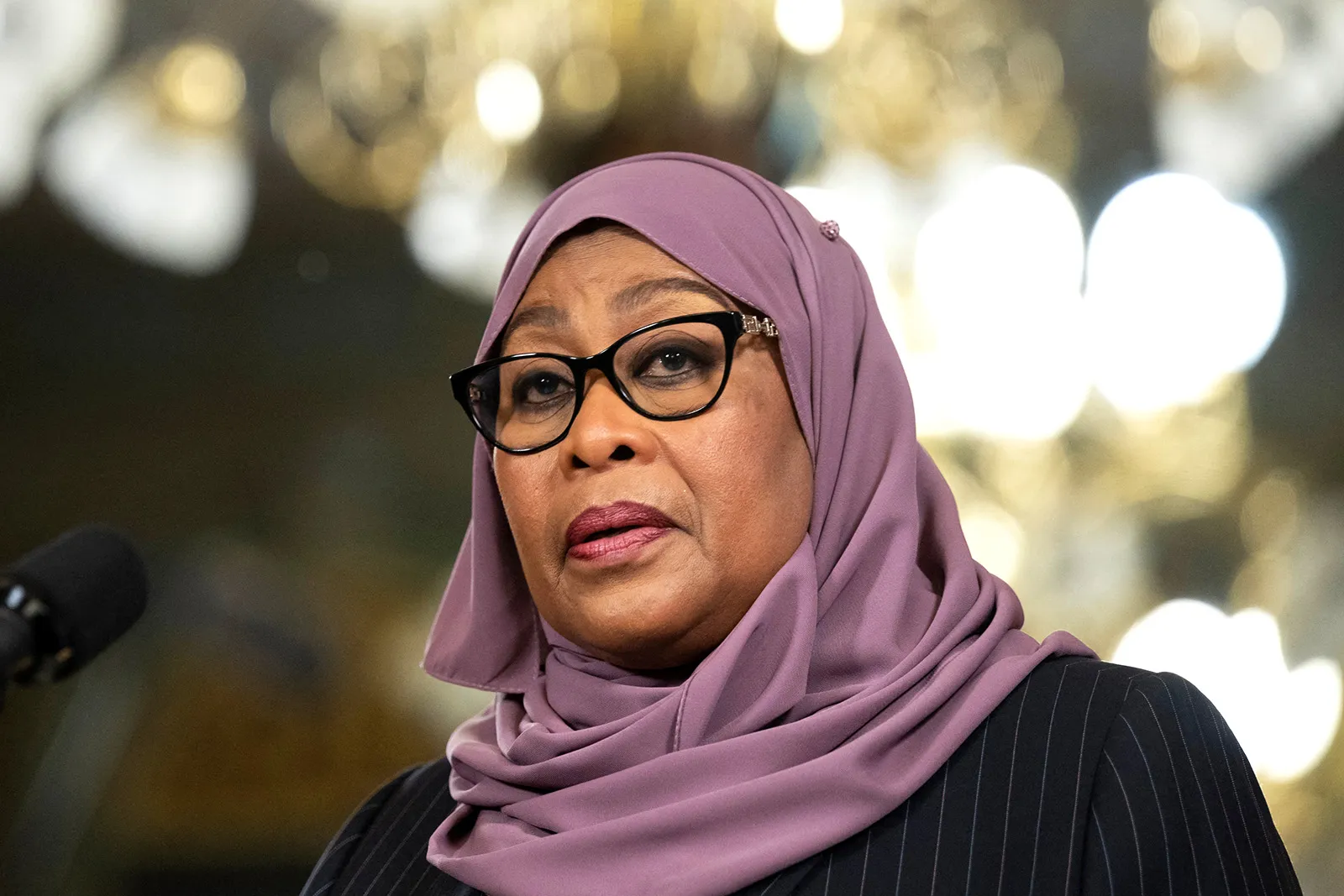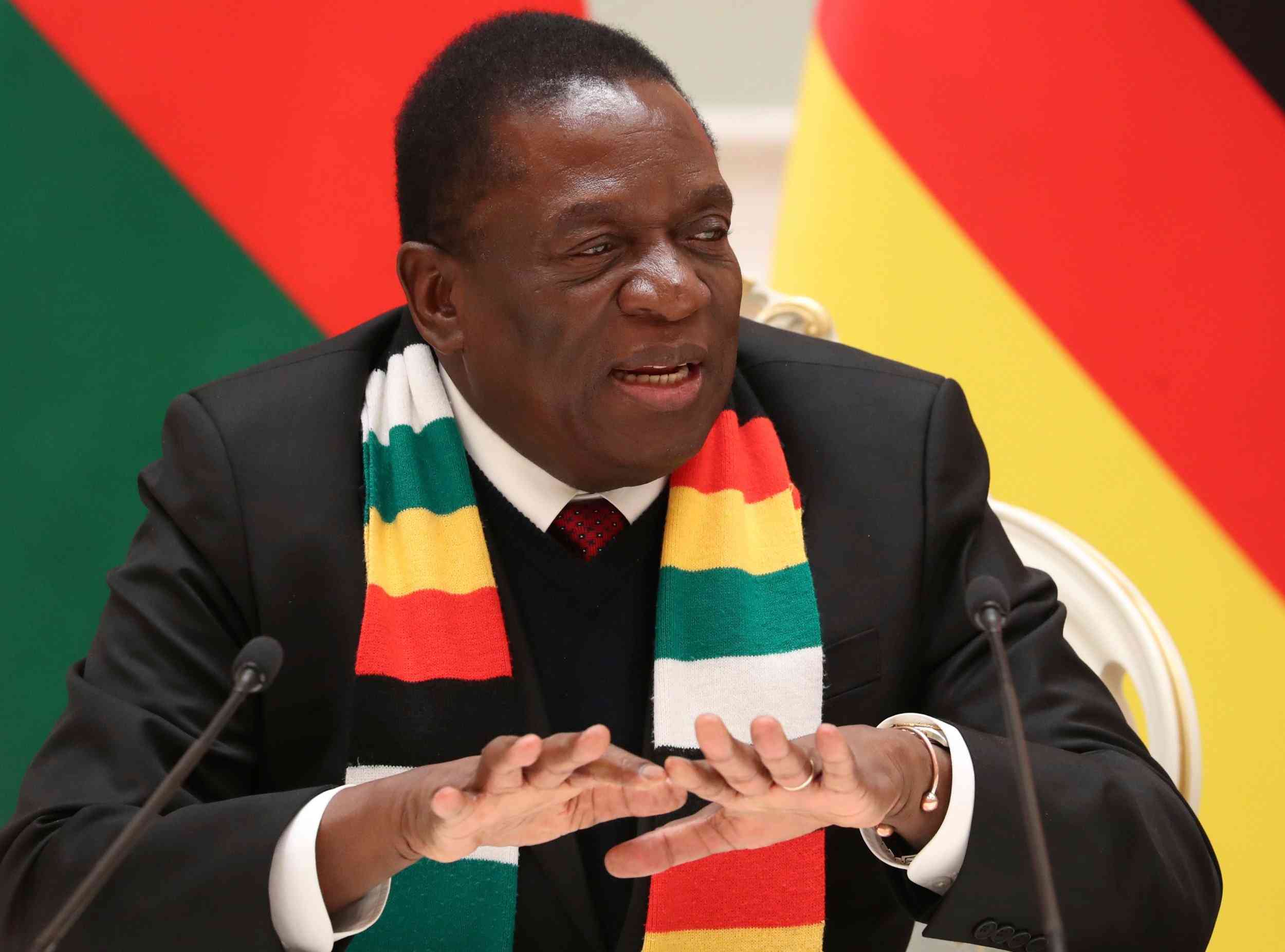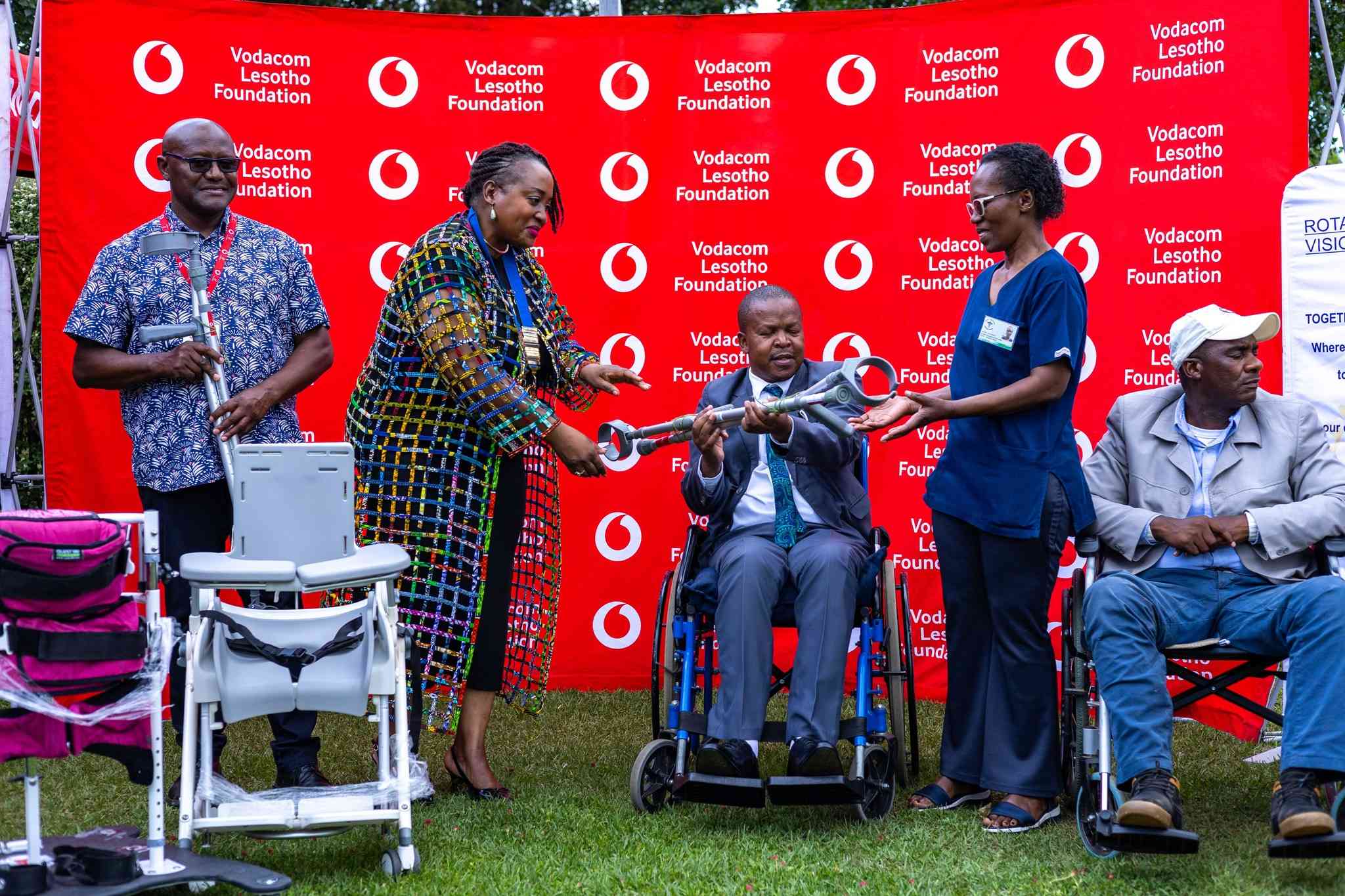
By Seisa Tšiame
For 24 years now, the Rotary Club of Maloti, a local affiliate of Rotary International, has steadily carved a role for itself as one of Lesotho’s most consistent civic organisations dedicated to community upliftment.
From health interventions and literacy support to humanitarian assistance, the club has demonstrated a sustained commitment to strengthening the wellbeing of Basotho.
This commitment was once again underscored on 12 November 2025 in Lesotho’s capital, where the club’s request to help the needy was answered with a significant handover event marking the arrival and distribution of assistive mobility equipment to be donated to persons with disabilities across the country.
The consignment comprising wheelchairs, walking aids, and hospital beds — was sourced through PhysioNet UK and donated to the Rotary Club of Maloti following the club’s request to the Vodacom Lesotho Foundation (VCLF).
For the Foundation, the gesture represented continued partnership with organisations that prioritise social impact at scale.
For the Rotary Club, it formed part of a long-running chain of initiatives aimed at improving the quality of life for vulnerable populations in Lesotho.
The event brought together a wide delegation of stakeholders: Social Development minister Pitso Lesaoana, representatives from health centres and hospitals, community councillors, caregivers of persons with disabilities, the Lesotho National Federation of Organisations of the Disabled (LNFOD), UN officials, and representatives of the Vodacom Lesotho Foundation.
- Masvingo turns down fire tender deal
- Byo author eyes SA award
- WhaWha triumphs in the slugfest of wardens
- 2 DJs murdered over woman
Keep Reading
The diversity of attendance reflected a shared belief that disability inclusion is not merely a programme area, but a national obligation.
Speaking at the handover, Rotary Club of Maloti president Yande Sikazwe-Mothae expressed gratitude to the Foundation for its continued openness to collaboration.
Sikazwe-Mothae commended Vodacom for keeping its doors open whenever the Rotary has proposed impactful projects.
“We are deeply appreciative that once again, the Vodacom Lesotho Foundation has helped us bring dignity and independence to communities that need it most,” she said.
The equipment will be distributed across Lesotho to both children and adults living with disabilities, prioritising cases identified through local health centres, NGOs working in disability advocacy, and community leadership structures.
Representatives from several beneficiary homes for persons with disabilities were present at the ceremony to receive part of the donation, underscoring the immediacy of the impact.
Vodacom Lesotho Foundation’s Katleho Pefole emphasised that the company’s social responsibility mandate is rooted in both compassion and accountability.
“Almost every week, Vodacom makes a statement to show that we care, either through words or demonstrative gestures such as this one,” Pefole said.
He stressed that the burden of enabling persons with disabilities cannot rest on one institution alone.
“Much more investment from all of us needs to go towards supporting the disabled. It cannot be Vodacom Lesotho alone,” Pefole said
He challenged government and development partners to advance beyond reliance on imported aid.
“While we are grateful for receiving from our partners in the United Kingdom, we can do better by ensuring that this equipment is developed locally, with the support of our academic institutions.”
Pefole underscored that, for his company, accessibility and inclusion remain central pillars, adding: “It is a very big part of our identity as Vodacom Lesotho.”
The message of independence and dignity echoed strongly as Rabasotho Moeletsi, a representative of LNFOD, delivered a powerful reflection on the meaning of assistive devices.
“Mobility equipment is a symbol of independent living. They are more than just equipment, these are a basic human right for which we at LNFOD have advocated for some time now,” Moeletsi said.
He emphasised that the transformative power of such equipment often goes unseen.
“When you see a disabled person graduate from university or perform their duties exceptionally at work, it is precisely because this assistive equipment has enabled them to do that,” Moeletsi said
“The availability of this type of equipment must, therefore, not be taken for granted, as it makes a wealth of difference to those in need.”
Minister Lesaoana officially received the equipment on behalf of government and immediately forwarded it to the Rotary.
Following the ceremonial handover, the minister delivered remarks, grounding the moment’s significance in national statistics.
Being wheelchair-bound himself, the minister noted that an estimated 3.5–3.7% of Lesotho’s 2.3 million people, around 60 000 citizens, live with disabilities.
“The critical part,” Lesaoana said, “is that the majority of these happen to be vulnerable and underprivileged members of our society.” He commended Rotary, Vodacom Lesotho, and PhysioNet UK for helping ease the burden carried by families and institutions on an ongoing basis.
The Rotary Club of Maloti’s intervention fits within its longstanding humanitarian footprint. Since its inception in 2011, the club has focused on key thematic areas aligned with Rotary International’s pillars.
Its work in Lesotho has included medical equipment donations, school support, youth development projects, and strengthening state institutions in emergency response initiatives.
For the Rotary, the mobility equipment project is one of several initiatives lined up for the current year, all geared towards amplifying community resilience.
This handover represents the evolution of giving in Africa. The ethos has remained the same, while the model has evolved into formalised cross-sector collaboration, where a civic organization; the Rotary Club of Maloti, mobilised a corporate partner, Vodacom Lesotho, and government partners provided the data on where the need is most urgent.
Together, they achieved a common good and helped unlock possibilities for citizens who often fall through society’s cracks.
As the equipment began its journey to those who will get the much-needed boost to pursue their life dreams, the gathering in Maseru concluded with a time-honoured African sentiment: dignity must not be selective.
For persons with disabilities, regardless of race, social background, or age, the ability to move, work, and study safely is something all must work to ensure, especially on a continent where disability often compounds vulnerability.
*The African Philanthropy Network (APN) is documenting success stories of African individuals and organizations engaged in philanthropic acts to raise awareness and to motivate locally driven development.

